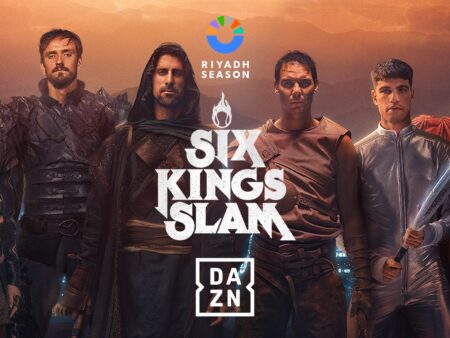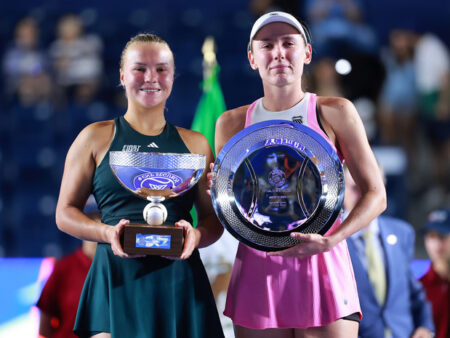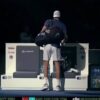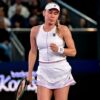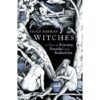For some athletes, the gleam of Olympic gold is merely a prelude to even grander achievements. For others, it becomes a gilded burden, a constant, shimmering reminder of what *was* and what *should be*. Tony Yoka, France’s sole Olympic super-heavyweight champion from Rio 2016, finds himself squarely in the latter category, navigating a professional career that has veered sharply off its initial golden trajectory. Now, at 32, Yoka returns to his hometown of Paris, not as the conquering hero once envisioned, but as a fighter desperate to reclaim his narrative and silence the growing chorus of doubt.
The Unforgiving Weight of Gold: An Olympic Curse?
The transition from amateur boxing`s point-scoring precision to the professional ranks` brutal endurance is a chasm many struggle to bridge. For Olympic super-heavyweight gold medalists, this leap often feels less like a progression and more like a fall. History, with a mischievous grin, suggests a peculiar “curse” on these elite few. Since the turn of the millennium, only one such champion, Anthony Joshua, has consistently ascended to legitimate world heavyweight championship status. Others – from Audley Harrison to Alexander Povetkin (who held a WBA regular title but never truly dominated the division), Roberto Cammarelle, and even the formidable Bakhodir Jalolov – have faced significant hurdles, underscoring the unique, often paradoxical, challenges that come with amateur boxing`s highest prize.
Tony Yoka was expected to defy this trend. His amateur pedigree, culminating in that unforgettable gold against Joe Joyce, marked him as the heir apparent to French heavyweight boxing. The nation held its breath, ready to crown its first true professional heavyweight king. Yet, the professional journey has been a series of unexpected detours and increasingly sharp turns.
The Parisian Paradox: Home-Turf Blues
Perhaps the most perplexing chapter in Yoka`s professional saga has been his inability to translate success into consistent victories on French soil. After a promising start, which included 11 straight wins, the wheels began to wobble. A defeat to the now-respected Martin Bakole in 2022 marked his first professional loss, a setback that, while understandable in hindsight, proved catastrophic for his momentum. Things then compounded in 2023 with back-to-back split decision losses to Carlos Takam and Ryad Merhy – fights that, crucially, all took place in Paris. For a fighter who thrives on crowd energy, the pressure of performing in his own backyard, under the weight of immense national expectation, seems to have become a significant psychological burden. The roar of the home crowd, intended to uplift, has instead accompanied a string of disappointments, creating a peculiar Parisian paradox where home advantage felt more like a lead weight.
A Tactical Retreat and a Renewed Offensive
Recognizing the need for a seismic shift, Yoka made a pivotal decision last year: he appointed British trainer Don Charles to his corner. This move signaled a conscious effort to rebuild, to re-evaluate, and to perhaps escape the immediate glare of the French media for a period of quiet resurgence. The strategy appears to have paid dividends, at least initially. Yoka’s subsequent appearances on lower-profile cards in the United Kingdom saw him secure two much-needed victories, stopping Amine Boucetta and Lamah Griggs. These wins, while not against elite opposition, were vital for regaining confidence, honing new strategies, and, crucially, getting back into the rhythm of winning. They were the methodical steps of a fighter looking to recalibrate, away from the intense scrutiny that had plagued his performances at home.
The Crucible: Arslan Yallyev and the Road Ahead
Now, with new guidance and two wins under his belt, the stage is set for Yoka’s ultimate test of resilience. He returns to Paris to headline an AllStar Boxing card at the Adidas Arena on Saturday, May 17th, facing undefeated Russian Arslan Yallyev (16-0, 10 KOs). This is no mere tune-up. Yallyev, making his debut outside of Russia, brings an unblemished record and a history of stopping opponents, with five KOs in his last six outings. For Yoka, this is a make-or-break encounter. A victory would not only snap his three-fight losing streak in Paris but also signal a genuine turning point, validating his new training regimen and reigniting hopes for future world-level challenges. A loss, however, particularly a fourth consecutive defeat on home soil, could prove devastating, potentially relegating him to the periphery of the heavyweight landscape and perhaps even extinguishing the last embers of his world title aspirations.
At 32, time remains a valuable ally for Tony Yoka. The heavyweight division is famously volatile, and careers can ignite or reignite unexpectedly. Opportunities still exist, including a tantalizing potential rematch with Joe Joyce, who himself has faced recent setbacks. But all such possibilities hinge on his performance against Arslan Yallyev. This return to Paris is more than just a fight; it`s a referendum on his career, a chance to break the “Olympic curse” and prove that the glitter of gold was indeed a prophecy, not merely a past triumph. The narrative of redemption is a powerful one in boxing, and on May 17th, Tony Yoka will attempt to write his most compelling chapter yet.
